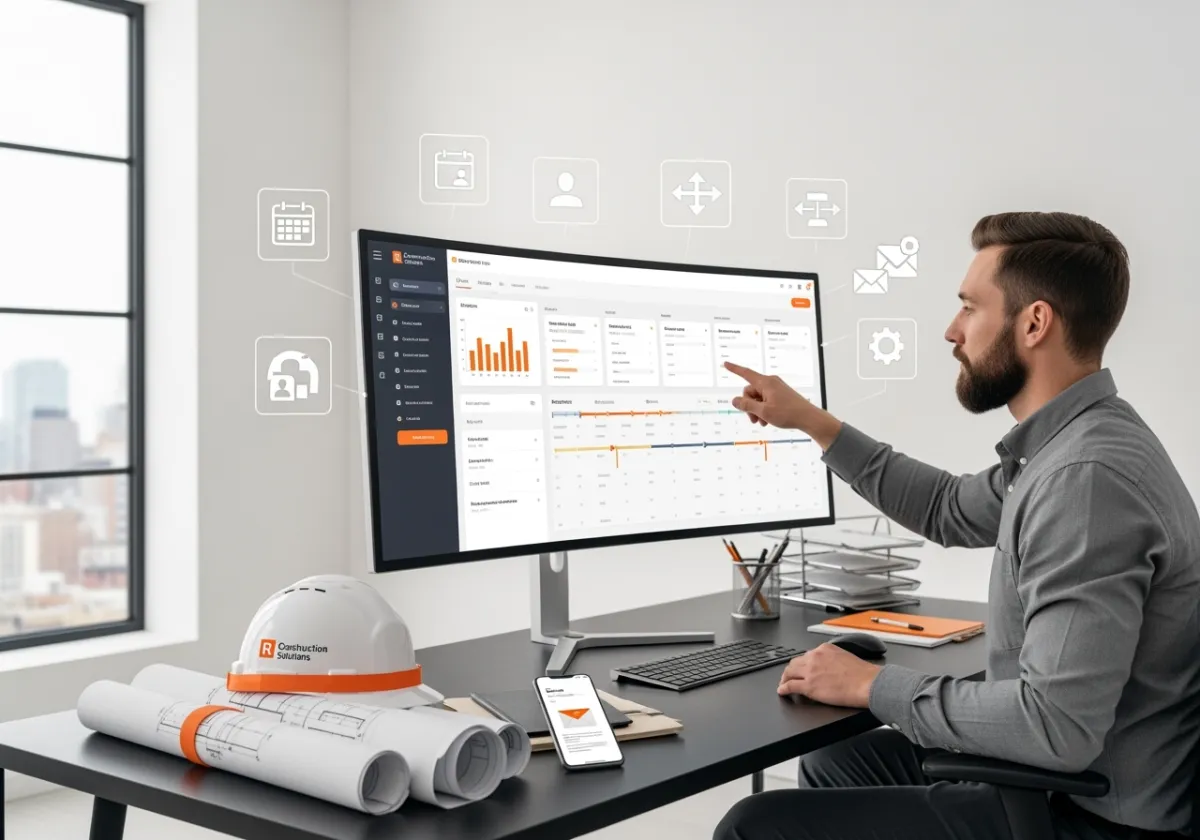
Why Every Contractor Needs a CRM: Unlocking Growth and Efficiency in Construction
Introduction
In the fast-paced construction industry, contractors juggle rising client expectations, tight deadlines, labor shortages, and intense competition. While many excel at project delivery, managing leads, client communications, and organization often falls short. A Customer Relationship Management (CRM) system tailored for contractors can transform these challenges into opportunities for growth and efficiency. Learn how CRMs boost productivity in this ConstructConnect CRM overview.
What is a CRM and Why Does It Matter for Contractors?
A CRM is a centralized platform that tracks leads, manages projects, nurtures client relationships, and automates repetitive tasks. For contractors, this translates to:
No more lost leads or forgotten follow-ups
Streamlined scheduling and communication
Clear visibility into your sales pipeline
Improved client satisfaction and retention
According to ForConstructionPros, contractors using CRMs report higher win rates, better client satisfaction, and more efficient operations. Additionally, Capterra’s construction CRM guide highlights how CRMs improve project management and client retention in construction.
Common Pain Points Contractors Face Without a CRM
Without a CRM, contractors often face:
Leads slipping through the cracks due to lack of centralized tracking
Missed follow-ups, leading to lost business opportunities
Scattered client communications across emails, texts, and calls
Time-consuming manual scheduling and reminders
Disorganized project details and documents stored in multiple locations
These issues can hinder growth and profitability. A CRM addresses them by providing structure and automation, as explained in JobNimbus’s guide to construction CRMs.
How CRM and Automation Transform Contractor Operations
1. Centralized Lead Management
With a CRM like HighLevel CRM for Contractors, every inquiry, referral, or website lead is captured and tracked from the start. You can monitor each opportunity, set follow-up reminders, and ensure no potential job is missed.
2. Automated Workflows
Automating tasks like appointment reminders, follow-up emails, or review requests saves time and reduces errors. For example, HubSpot’s construction CRM features offer automation tools that streamline client interactions, ensuring a professional experience without manual effort.
3. Improved Scheduling and Communication
CRMs simplify scheduling for consultations, site visits, and project milestones. Automated notifications keep teams and clients aligned, reducing miscommunication and delays. Tools like Buildertrend’s CRM integrate scheduling with project management for seamless operations.
4. Better Project Tracking
Attach documents, notes, and photos to each project within the CRM, creating a single source of truth. This ensures easy access to updates and improves collaboration, as noted in Autodesk’s article on construction technology.
5. Enhanced Client Experience
A CRM delivers a responsive, professional experience, fostering trust and increasing repeat business and referrals. Salesforce’s construction CRM solutions emphasize how personalized client interactions drive loyalty.
Why Choose a Contractor-Specific CRM Over Generic Solutions?
Generic CRMs, like those designed for retail or tech sales, often lack features tailored to construction. Contractor-specific CRMs, such as those offered by R. Construction Solutions, include:
Templates for estimates, proposals, and change orders
Automated review and referral requests
Custom pipelines for different project types
Mobile-friendly interfaces for field teams
Explore contractor-focused CRM features in this Software Advice comparison.
Real Results: CRM in Action
A residential contractor in McHenry County struggled with lead tracking and client communications. After adopting HighLevel CRM, they saw a 30% increase in closed deals and reduced admin time by 50%. By automating follow-ups and centralizing project data, they focused more on building and less on paperwork. Similar success stories are shared in Jobber’s contractor CRM case studies.
Getting Started: Small Steps, Big Impact
Adopting a CRM doesn’t have to be daunting. Start by centralizing new leads, then gradually automate follow-ups and scheduling. R. Construction Solutions offers customized CRM setup and staff training for a smooth transition. For additional guidance, check out Construction Executive’s CRM implementation tips.
By integrating a CRM, contractors can streamline operations, boost client satisfaction, and unlock new growth opportunities in a competitive industry.
